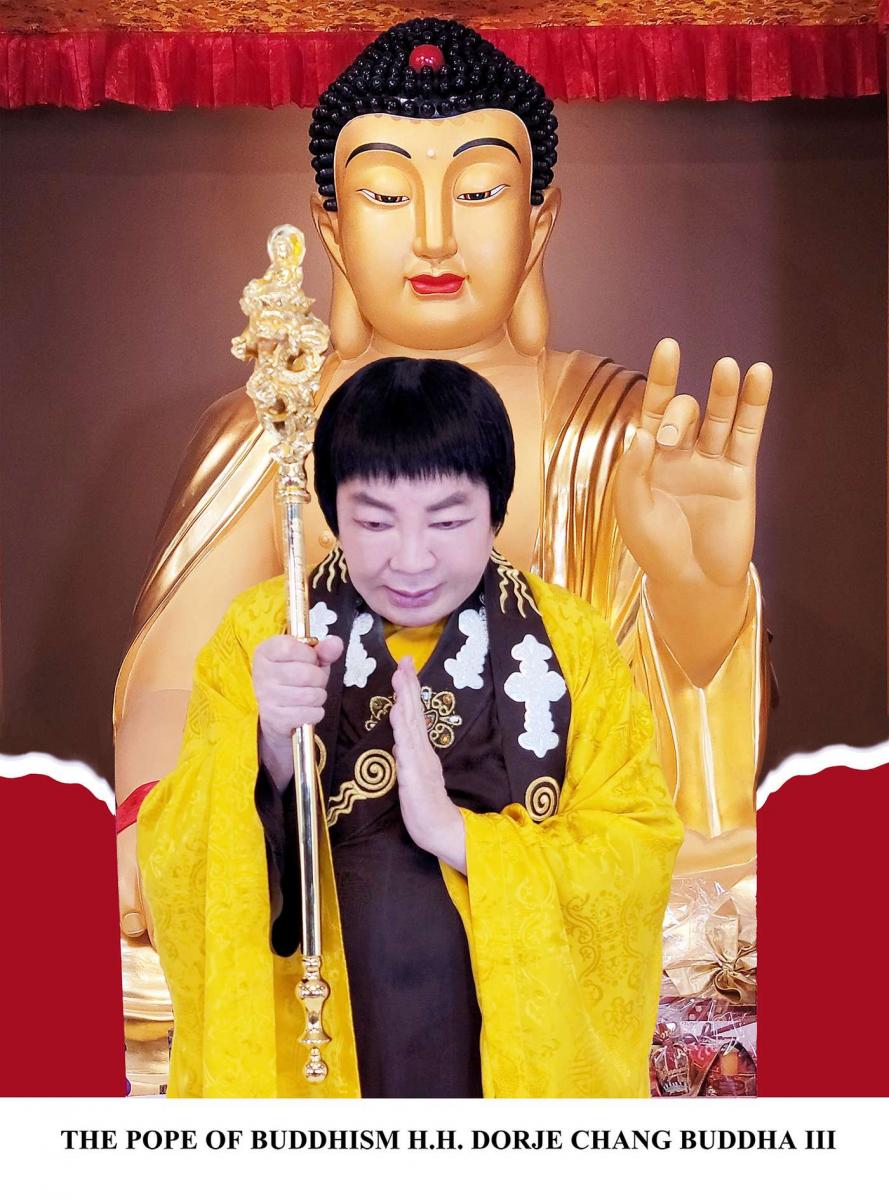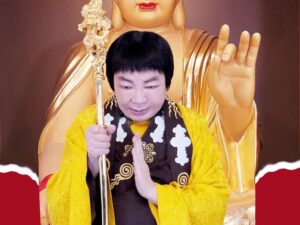DCB35 Learning From Buddha
- Description
- Curriculum
- FAQ
- Notice
- Reviews

This is the published preliminary English translation of Learning from Buddha. It is an important teaching from H.H. Dorje Chang Buddha III that was given as a discourse in America and released as Chinese CDs in 2016. It has three parts: One on the practice of cultivation, one on the formal practice of tantric dharma, and one on how you implement both of those practices in your daily life. Learning from Buddha is essential for anyone wanting to do yidam practice and become enlightened in this lifetime. It is available for anyone to read and study, but you would need to take refuge and be willing to have the Three Jewels of Buddha, Dharma, and Sangha as your role models to receive benefits from the tantric dharmas explained therein. It will be difficult to attain accomplishment without learning this Dharma.
A brief discourse by H.H. Dorje Chang Buddha III is included in the front of the text concerning two photos of His Holiness showing Him first as a wrinkled old man and later transformed into a handsome youth along with narrative on the event.
You will read the entire discourse several times and prepare a preliminary summary of the essence of the discourse in your own words as if you were going to explain it to someone who was not familiar with the discourse or even knew much about Buddhism. Then you will answer a series of homework questions and submit them for feedback from the facilitator.
For your final project your first step is submitting a list of at least ten passages from the text that you found meaningful. The second step is taking those passages and explaining what they mean and why you selected them and presenting that to your facilitator. The third step is to presenting what you learned to someone else and documenting that as your final project. You may include how this course has impacted your life and practice and respond to questions about your presentation from your fellow students. This is an on-line version of what would have been a debate in Tibet. The class may also end with a multiple question final exam to make sure you understand the most critical principles taught in this discourse. The presentation part is optional for those enrolled in the Buddhist Studies Program, but required in the Xiuxing Seminary Program.
This course, per se, is not part of the free Auditing Student Program. However, because the Dharma itself should always be free, the actual PDF of the sutra is available to anyone. Click curriculum button at top of description to view course and click public “PREVIEW” buttons to hear caveats that go with all preliminary translations and to download sutra.
If you have not registered for a membership, please click on “Membership” on the top menu bar to select your membership (either Buddhist Studies or Xiuxing Seminary) and enroll in this course. You are also required to complete the application form provided in course “G02-Spiritual Autobiography” prior to being admitted to either of these programs. You are also required to complete “D01(A)-The Supreme and Magnificent Dharma,” “D35(A)-The 128 Evil and Erroneous Views,” “DCB12-The Dharma of Cultivation, ” “D06(A)-Main and Preliminary Practices,” and “D22(A)-Dharma Lineages.”
Click for detailed Users Guide under the “STUDENT MANUAL” in the website’s top menu bar for more information.
2024-09-26: The Heart Sutra used in the chanting at the beginning has been revised to reflect the most recent translation of Expounding the Absolute Truth through the Heart Sutra.
Assignments 8 & 9 have been redone. Question 4 from Assignment 1 has also been revised.
2024-10-10: D06(A) has been added as a prerequisite; Final Project/Paper assignments have been modified.Feedback added.




